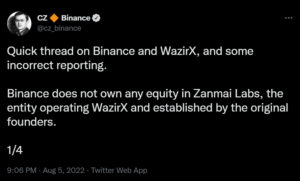For most small and medium-sized businesses (SMB) in India, invoice management is a tedious process. Typically, when an SMB generates an invoice on an enterprise resource planning (ERP) software, it is distributed among relevant parties manually or as emails—or even as WhatsApp forwards.
As the due date looms, SMBs start reminding clients about payments, again often manually. Payments are made through channels like NEFT (National Electronic Fund Transfer), RTGS (real-time gross settlement), instruments like cheques, or even cash. The last leg of the process is invoice reconciliation, and this too is often done manually.
Unsurprisingly, the process is error-prone because of so many manual interventions. The observation pushed FinTech startup Hylobiz to design a connected banking platform that eases tasks like collection of payments, settlement of bills, automatic reminders and reconciliation for SMBs through digitisation.
The Bengaluru-based startup offers integrations with ERP software and other business tools to SMBs on one hand, and banks on the other. Enterprises can then auto-sync invoices irrespective of the ERP they are using, automate payment reminders, and even get connected banking services.
The neobanking solution enables SMBs to avail services like insurance, loans, bill discounting, utility payouts, taxes and payments through single-window access to a platform that’s built with open banking application programming interfaces (APIs) through direct partnerships with banks.
Plugging the gap for SMBs
Hylobiz was founded in 2019 by Vishal Gupta, Ashish Mahal, Lakshmi Thampi and Anurag Rastogi. Between them, the founders have vast experience in tech, banking and enterprise sales in markets across India, West Asia, Africa and Southeast Asia. The quartet has helped banks, lending institutions and enterprises meet their technology needs in enabling digitisation, automation and reconciliation.
Hylobiz wanted to fill the gap for SMBs, especially in the secondary sales network while ensuring efficient cash flow and working capital cycles, says co-founder Vishal Gupta. “Another factor that convinced us to go after this opportunity was our business relations across markets, banks and enterprises,” he adds.
The platform eases enterprises’ access to banking facilities and digital services by creating a circulatory system between the clients’ ERP software and their respective banking partners.
“We envisioned ourselves to be a financial services marketplace in such a way that banks, lenders, insurance companies, billers and other service providers relevant to the SME segment can be integrated into our platform seamlessly across the corridors,” Vishal recalls.
The team had the option of building the technology and offering it to its partners, or build it and go for a global rollout through partner alliances. After much deliberation, the founders decided to go with the latter. However, the choice had its own challenges, Vishal admits.
“We faced an uphill task while trying to get the ERPs on our side and simultaneously getting banks and financial institutions to agree for third-party integrations. As we started building the product and piloting it, closing some of the key relationships took us 18-20 months.”
The hard work finally paid off just months later. Hylobiz was able to launch operations first in India, and then the UAE with multiple strategic partners.
Raising the bar for SMBs
What works in Hylobiz’s favour is how the platform digitises SMBs’ visibility of cash flows, receivables and payables automation without requiring the enterprises to change their existing processes or business tools. Hence, an SMB’s digital transformation doesn’t impact its existing processes, tools or systems.
Hylobiz serves traditional distributors, wholesalers, manufacturers, and resellers, whose banking loyalties are tied, and it is important for them to connect seamlessly with their existing bank. “That’s where our out-of-the box pre-integrated offerings to multiple ERPs come in,” Vishal notes. “Even if an SMB uses Microsoft Word or Excel spreadsheet for invoice management, they can upload the same or use Hylobiz to start maintaining a digital record.”
Being linked to an SMB’s bank account, the platform ensures that the receivables and payables are visible without the enterprise having to use multiple interfaces. “Today, an SMB owner logs into the ERP to gather information about the dues, gets an update from the buyer or the accounting team about the payments and then validates it by logging into his/her bank account. By linking the bank account with Hylobiz, SMBs do not have to shuttle from one application to another. Hylobiz ensures that all this information is available to the SMB through a single window,” Vishal explains.
Hylobiz also ensures that an SMB doesn’t miss an invoice through an efficient system that connects ERPs and business applications. The moment an invoice is generated on the ERP/business tool, it is synchronised automatically without any manual intervention.
An ISO27001 certified company, Hylobiz leverages microservice APIs and strong data encryption at multiple levels to ensure data security and privacy for its clients. Plus, it conducts regular audit trails to spot any misuse of information.
To avail Hylobiz’s services, an SMB has to register on the startup’s website and fill in the KYC details. Once the details are verified by the team, the SMB can start using the platform to grow its business.
Currently, Hylobiz has 1,000+ businesses registered on its platform with more than 20,000 SMEs receiving their invoices and payments through it. Till April 2021, the startup has processed invoices worth over $30 million (Rs 200 crore approximately).
Lessons from a pandemic
Working closely with SMBs during the pandemic, Hylobiz saw the damaging effect that COVID-19 had on the SMB value chain from close quarters. The situation only improved once the markets started reviving later in 2020. Hylobiz saw a surge in adoption of its services across the SMB value chain, as enterprises realised how digitisation could ease their woes by streamlining invoice management.
“We grew from just 50 SMEs on our platform to more than 1,500 during the period. We process over 30 crore invoices today, while in August 2020 we were managing merely 1 crore. It was because of the pandemic that we launched operations in the UAE so quickly, and our business has grown massively. We are processing invoices close to 1 million Dirhams (AED) per month over the past 3-4 months,” says Vishal.
Talking about how the startup is manoeuvring its way through the post-pandemic landscape, Vishal says Hylobiz is building its brand and use case visibility via its digital reach and social channels. It also had multiple strategic collaborations with top ERP players and financial institutions across India and the UAE.
The startup will be focussing on strengthening its operations in India and markets in West Asia and North Africa in the near future. “We are working to launch our platform in Bahrain, Oman, Saudi and Nigeria. With strategic alliances with global players like VISA International, we look forward to having a bigger global presence over the next few years,” says Vishal.
Hylobiz is among the 10 startups who are a part of NSRCEL FinTech cohort — an initiative launched by ICICI Securities and Indian Institute of Management-Bangalore’s startup hub NS Raghavan Centre of Entrepreneurial Learning (NSRCEL).
The accelerator programme aims at nurturing early-stage FinTech startups by way of guidance by mentors through need assessment, one-on-one interactions and workshops. Apart from exclusive access to IIMB’s resources and industry connections, the participating startups will also be receiving funding support at the end of the programme.
To know more, visit website










![Read more about the article [Funding alert] Gobbly raises Rs 7.2 Cr in pre-Series A led by Anicut Angel Fund and Sauce.VC](https://blog.digitalsevaa.com/wp-content/uploads/2021/09/Funding-Round-1631085424610-300x150.jpg)